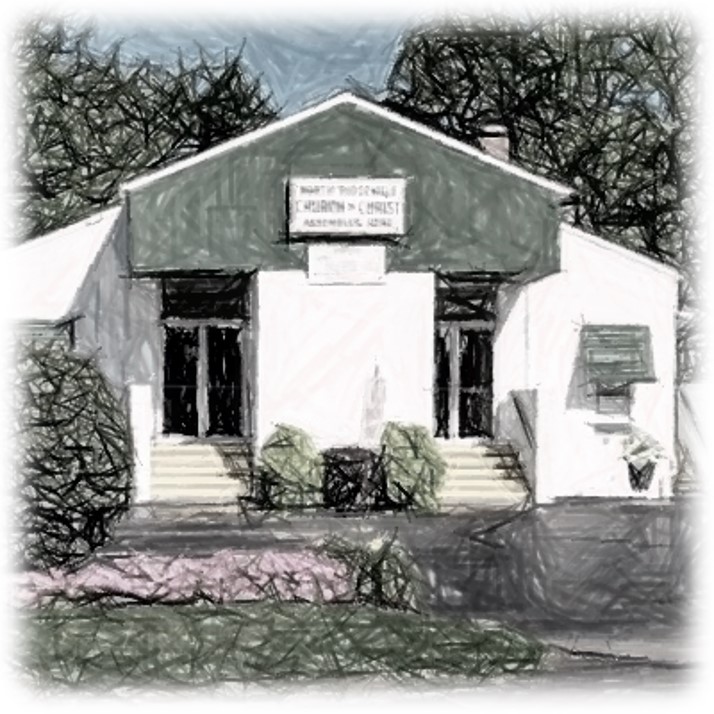"Why Do You Not Believe in Music?"
Steven J. Wallace
"speaking to one another in psalms and hymns and spiritual songs, singing and making melody in your heart to the Lord" (Eph. 5:19).
Some might confuse our opposition to instruments of music in worship by believing we do not believe in music. We very much believe in music and have it in all of our worship assemblies. Our opposition to instrumental praise is due to finding no authority in the New Testament for such. Similarly, our opposition to Catholics burning incense in worship is not because we do not like pleasant scents, but because there is no authority in the New Testament for it. We oppose baptizing babies not because we do not like babies or disbelieve in baptism, but rather because we find no authority in the New Testament for the act. Babies and little children are safe and do not have sins that need to be washed away (Matt. 18:1-4). We have long argued against Mormonism for having practiced polygamy not because we do not believe in marriage and do not like women, but because we find no authority for a man to be joined to more than one woman in the New Testament (Eph. 5:31-33). We are not opposed to instruments as a secular art. There are many members of the Lord's church who are very talented in this field. While it may seem strange to hear this opposition today, instruments were once fervently rejected in worship by many theologians.
John Calvin wrote,
"Musical instruments in celebrating the praises of God would be no more suitable than the burning of incense, the lighting up of lamps, and the restoration of the other shadows of the law" (Psalms, Vol. 1, p. 539).
Calvin was correct in showing the inconsistency of adding the Old Testament instrument to worship while not adding the burning of incense and the lighting of lamps.
Charles Spurgeon, a Baptist preacher who preached to thousands of people every Sunday in London possessed a low view of adding mechanical instruments in worship. When he was asked about such, he quoted 1 Corinthians 14:15 and then said, "I would as soon pray to God with machinery as to sing to God with machinery."
In his commentary on Psalm 42:4, he wrote:
"David appears to have had a peculiarly tender remembrance of the singing of the pilgrims, and assuredly it is the most delightful part of worship and that which comes nearest to the adoration of heaven. What a degradation to supplant the intelligent song of the whole congregation by the theatrical prettinesses of a quartette, the refined niceties of a choir, or the blowing off of wind from inanimate bellows and pipes! We might as well pray by machinery as praise by it."
He also penned,
"We who do not believe these things to be expedient in worship, lest they should mar its simplicity…" (Commentary on Psalm 33:2).
Beautiful simplicity and harmony are found in congregational singing, which an instrument can disrupt. Those playing instruments demonstrate personal talent and set themselves off from the rest of the congregation. Worship is never to become a talent show but a time to draw near and glorify God. 2 Corinthians 10:17 exhorts, "But 'he who glories, let him glory in the LORD.'"
Baptist theologian and debater, Andrew Fuller, penned:
"The history of the church during the first three centuries affords many instances of primitive Christians engaging in singing, but no mention, (that I recollect) is made of instruments. (If my memory does not deceive me) it originated in the dark ages of popery, when almost every other superstition was introduced. At present, it is most used and where the least regard is paid to primitive simplicity" (Complete works of Andre Fuller, Vol 3, P. 520, 1843).
With this observation, why would a Baptist approve of papal music in their chapels but not permit the Pope in their pulpit?
Methodist commentator, Adam Clarke abhorred the use of instruments in praise, writing:
"I am an old man, and I here declare that I never knew them to be productive of any good in the worship of God, and have reason to believe that they are productive of much evil. Music as a science I esteem and admire, but instrumental music in the house of God I abominate and abhor. This is the abuse of music, and I here register my protest against all such corruption of the worship…John Wesley, who was a lover of music, and an elegant poet, when asked his opinion of instruments of music being introduced into the chapels of the Methodists, said in his terse and powerful manner, 'I have no objections to instruments of music in our chapels, provided they are neither heard nor seen.' I say the same." (Clarke's Commentary, Vol. 4, page 684.)
Historian, Philip Schaff wrote, "The use of organs in churches is ascribed to Pope Vitalian (657-672)" (History of the Christian Church, Vol. 4, pg. 439).
Martin Luther viewed the organ as "the ensign of Baal."
Alexander Campbell described the view of instrumental music in worship for spiritually minded people to be like adding a cowbell to a musical concert.
Many more scholars could be quoted. But a question should surface, "Why is instrumental music so widely accepted today when it was so vehemently opposed and held with contempt by great religious leaders of the past?" A better question is, "What kind of music does God want in worship, and has He made that abundantly clear?" We will look at this in our next bulletin.
Jesus said in John 4:23, 24:
"But the hour is coming, and now is, when the true worshipers will worship the Father in spirit and truth; for the Father is seeking such to worship Him. God [is] Spirit, and those who worship Him must worship in spirit and truth."
.
